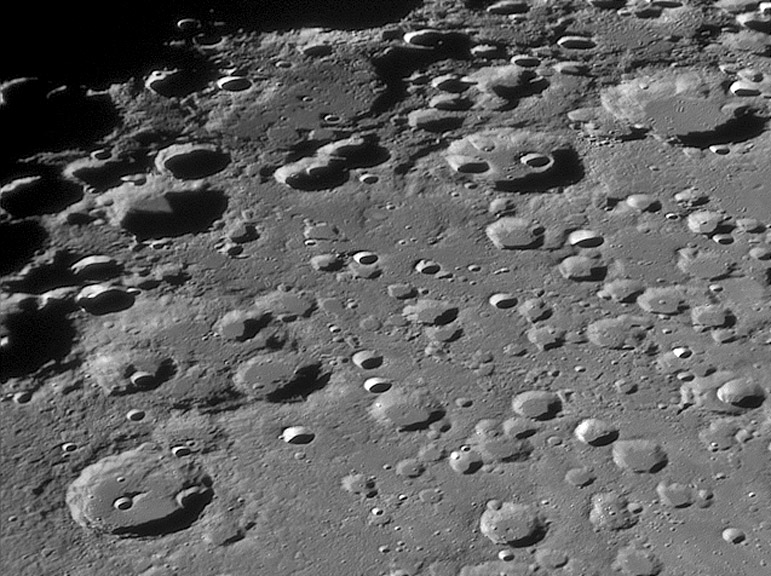
image by Bob Pilz
This picture looked familiar. The area is a nondescript region between Manzinus (top right with smooth floor) and Pitiscus (lower left, smooth floor with small peak) in the lunar southeast quadrant. Most of the craters are boringly similar with smooth floors and no peaks nor terraces. Between the craters is a not quite smooth, slightly textured plains material that could be fluidized ejecta from basins (I doubt it) or some ancient unsampled volcanism - there is really no evidence one way or the other. Left of center near the top is a curved arc casting a shadow on a lower surface. This looks like an old crater with only part of the rim remaining. It could be about the size of Manzinus - 100 km in diameter - or it could be twice that size. The reason this picture looked familiar is that I had discovered this depression on an earlier image submitted to LPOD. Today’s image has nearly identical lighting conditions but higher resolution. I encourage you to check the older LPOD for a mouseover image that identifies features, and a text that still says all I know. Perhaps images with the opposite lighting will suggest an explanation; wish I had one.
Technical Details:
9 September 2006, ~7:48 UT. 200mm f/6 Newtonian reflector + Televue 2.5x Barlow + DMK 21BF04 B/W camera + ‘Blue’ IR-block filter, 600/6000 frames stacked in Registax, ImagesPlus, PS CS. I have altered Bob’s original processing to better show the detail in the bottom of the suspicious depression.
Related Links:
Rükl charts 74 & 75
Bob’s lunar gallery
Yesterday's LPOD: Lava or Ejecta? An Answer at Last!
Tomorrow's LPOD: Land of Manna
COMMENTS?
Register, Log in, and join in the comments.



